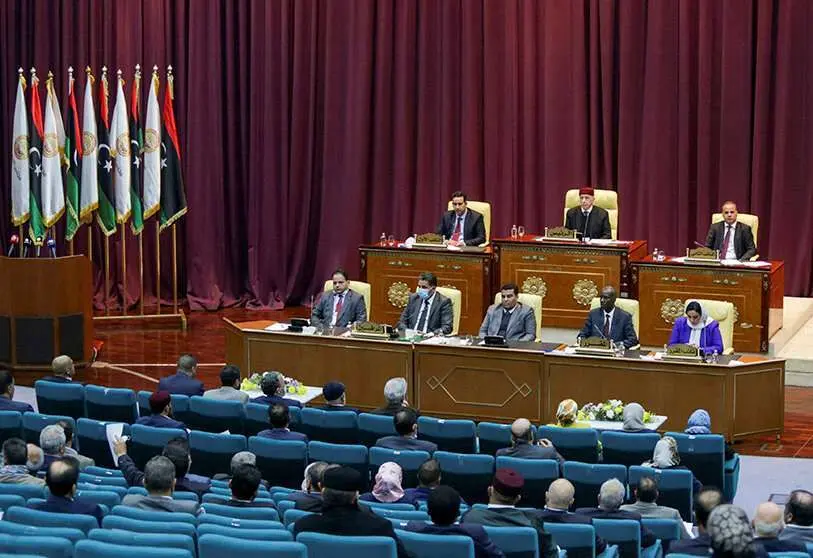Libyan parliament holds first session in Tripoli since 2014

Seven years later, members of the Tripoli parliament are meeting to discuss the upcoming presidential elections, scheduled for 24 December. According to Abdullah Blehaq, spokesman for the House, the Speaker of Parliament, Fawzi al-Nuiri, "invited the members to attend the session in Tripoli", which will be held today, Monday. Blehaq stressed that this meeting is "consultative only". The session will focus on the elections, the work being done by the electoral commission and possible obstacles facing the electoral process.
The final list of presidential candidates for the elections was due to be published this weekend, but the electoral board postponed the announcement, saying it must still take a number of judicial and legal steps "before proceeding with the publication of the final list of candidates". "Given the sensitivity of this stage and the political and security circumstances surrounding it, the commission is prepared to exhaust all means of litigation to ensure that its decisions comply with the rulings issued," the board explained in a statement. It added that its aim is to "promote the principle of credibility" in the elections.

The postponement of the official list of presidential candidates less than two weeks before the elections is clouding the democratic and peace process in Libya that aims to bring stability to the country, which has been at war since the overthrow of Muammar Gaddafi in 2011. However, the electoral commission must act in accordance with the law and ensure that all candidates meet the necessary requirements to run for president. Among the aspirants, the candidacy of Saif al-Islam Qadhafi, son of the former Libyan leader, has caused controversy due to the court cases against him. Saif al-Islam was indicted for crimes against humanity in 2011 by the International Criminal Court, while in Libya he has been denounced for possible links to Russian mercenaries. Despite his candidacy, both international and domestic courts have maintained the arrest warrant against Gaddafi's son.
Because of this situation, the Libyan electoral commission initially rejected his candidacy; however, after a lengthy appearance of Saif al-Islam before the Sebha Court, the Libyan judiciary accepted his appeal. Recently, his lawyer, Khaled al-Zaydi, has reiterated the legitimacy of his candidacy, asserting that his client "has become one of the final presidential candidates and no lawsuit can be filed against his candidacy". "He has fulfilled all the necessary legal requirements to accept his candidacy file," he added.

Marshal Khalifa Haftar is another presidential hopeful who has caused controversy over his court cases. A Libyan court sentenced him to death in late November on charges of war crimes. Haftar was the leader of the Libyan National Army (LNA) until he resigned to run in the elections. Russia is the marshal's main supporter, although he has also been backed by the United Arab Emirates, France and Jordan, among others.
In addition to Saif al-Islam and Haftar, another application that has been challenged by the Libyan judiciary is that of Abdul Hamid Dbeide, the current prime minister. Dbeide was accused of failing to meet the necessary requirements to stand as a candidate, in addition to promising the United Nations that he would not run for president.

In addition to the judicial challenges, there are also growing disputes between the candidates. The political authorities in Tobruk, led by Haftar, have called for the appearance of Emad al-Sayed, chairman of the electoral commission, over alleged irregularities in the democratic process. 70 Tobruk MPs have denounced "the commission's silence on suspicions of fraud, vote-buying and attempts to influence the judiciary".
Despite the obstacles and the risks of a postponement of the elections, the UN's efforts to hold free and legitimate elections continue. Raisedon Zenenga, coordinator of the mission in Libya, met with Al-Sayed this weekend to discuss "the current status and trajectory of the electoral process". Zenenga praised some of the preparations but also "stressed the importance of addressing emerging political and technical challenges that could disrupt progress".








